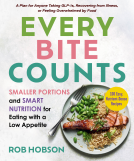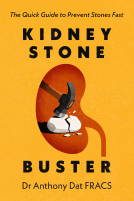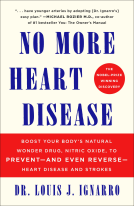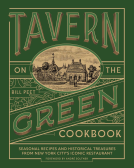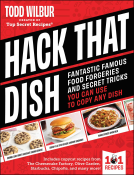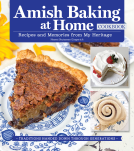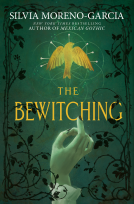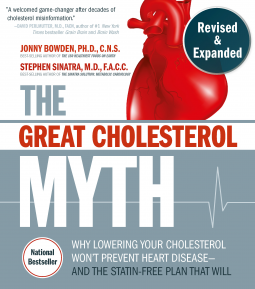
The Great Cholesterol Myth, Revised and Expanded
Why Lowering Your Cholesterol Won't Prevent Heart Disease--and the Statin-Free Plan that Will - National Bestseller
by Jonny Bowden; Stephen T. Sinatra
This title was previously available on NetGalley and is now archived.
Send NetGalley books directly to your Kindle or Kindle app
1
To read on a Kindle or Kindle app, please add kindle@netgalley.com as an approved email address to receive files in your Amazon account. Click here for step-by-step instructions.
2
Also find your Kindle email address within your Amazon account, and enter it here.
Pub Date Oct 20 2020 | Archive Date Nov 03 2020
Quarto Publishing Group – Fair Winds | Fair Winds Press
Talking about this book? Use #TheGreatCholesterolMythRevisedandExpanded #NetGalley. More hashtag tips!
Description
Heart disease is the #1 killer. However, traditional heart disease protocols—with their emphasis on lowering cholesterol—have it all wrong. Emerging science is showing that cholesterol levels are a poor predictor of heart disease and that standard prescriptions for lowering it, such as ineffective low-fat/high-carb diets and serious, side-effect-causing statin drugs, obscure the real causes of heart disease. Even doctors at leading institutions have been misled for years based on creative reporting of research results from pharmaceutical companies intent on supporting the $31-billion-a-year cholesterol-lowering drug industry.
The Great Cholesterol Myth reveals the real culprits of heart disease, including: inflammation, fibrinogen, triglycerides, homocysteine, belly fat, triglyceride to HDL ratios, and high glycemic levels.
Best-selling health authors Jonny Bowden, PhD, and Stephen Sinatra, MD, give readers a four-part strategy based on the latest studies and clinical findings for effectively preventing, managing, and reversing heart disease, focusing on diet, exercise, supplements, and stress and anger management.
Myths vs. Facts
Myth: High cholesterol is the cause of heart disease.
Fact: Cholesterol is only a minor player in the cascade of inflammation which is a cause of heart disease.
Myth: Saturated fat is dangerous.
Fact: Saturated fats are not dangerous. The killer fats are the transfats from partially hydrogenated oils.
Myth: The higher the cholesterol, the shorter the lifespan.
Fact: Higher cholesterol protects you from gastrointestinal disease, pulmonary disease, and hemorrhagic stroke.
Myth: High cholesterol is a predictor of heart attack.
Fact: There is no correlation between cholesterol and heart attacks.
Myth: Lowering cholesterol with statin drugs will prolong your life.
Fact: There is no data to show that statins have a significant impact on longevity.
Myth: Statin drugs are safe.
Fact: Statin drugs can be extremely toxic including causing death.
Myth: Statin drugs are useful in men, women, and the elderly.
Fact: Statin drugs do the best job in middle-aged men with coronary disease.
Myth: Statin drugs are useful in middle-aged men with coronary artery disease because of its impact on cholesterol.
Fact: Statin drugs reduce inflammation and improve blood viscosity (thinning blood). Statins are extremely helpful in men with low HDL and coronary artery disease.
Available Editions
| EDITION | Other Format |
| ISBN | 9781592339334 |
| PRICE | $27.99 (USD) |
| PAGES | 240 |
Average rating from 10 members
Featured Reviews
 Librarian 22381
Librarian 22381
The authors have updated their 2012 book of the same title, continuing to emphasize why they believe that the extreme focus on lowering cholesterol is misguided. They see cholesterol-lowering drugs like statins as mainly helpful for middle aged males with other underlying conditions, viewing the current blood test for cholesterol as inadequate, and suggesting that a better predictor of heart disease is the triglyceride number divided by the HDL. The authors showcase studies indicating that high fat foods are not the villain that they have been made out to be; rather, they see sugar as the enemy, contributing to insulin resistance as a primary cause of heart disease. Thanks to the publisher and to Netgalley for this ARC.
I like that the authors try to clear up a bunch of misconceptions around cholesterol and heart disease. The medical community has been really aggressive pushing statins on patients for the last several decades, but are quick to ignore the very real and harmful side effects that come with all statins. Having low cholesterol just for the sake of an arbitrary number isn’t always worth the damage statins do. Doctors must be more upfront with their patients about what the statins will do to their bodies! It’s lazy practicing to just throw statins at patients instead of working with patients to educate them on how to eat right and live well. Hope this is a sign of things to come for a paradigm shift in treating high cholesterol and non-heart disease. All in all, a nicely done, informative piece.
 Susie F, Reviewer
Susie F, Reviewer
A surprisingly really interesting book, I’ve definitely learnt lots I didn’t know about cholesterol.
Thank you NetGalley for my complimentary copy in return for my honest review.
Content Warnings: Discussions of weight loss, dieting, BMI and body measurements*
This book is 100% recommended reading for anyone (less those for whom the CW lists triggers), especially women, who are under pressure from their health care providers to go on a statin.
The authors break down what we know about cholesterol, how we currently test for it (vs. how we should be testing for it) and how the body uses cholesterol. This is a lot of sometimes complex information presented in a very readable way. Through a mix of individual patient anecdotes and reviews of studies, the authors tease out the reality of cholesterol as it pertains to our health and wellness. This is a wonderful “laypersons” reference for a complicated subject.
That said, as a total nerd with training in epidemiology, this book is also amazing for anyone with a health or science background. The authors treat epidemiology as it is meant to be used, creating a beautiful ode to meta-analysis and a breakdown of the impacts of cholesterol across many major health concerns. (I will admit, the sick burn of the NHANES Food Frequency Questionnaire was a personal delight.)
The book wraps up with some broad guidelines for ways to improve your health without focusing on arbitrary changes in numbers from an outdated test. While the suggestions do sort of gloss over the fact that many people are not able to tend to their health for systemic reasons (poverty, disability, healthcare access, etc) the suggestions are not outlandish or fad-diet based. These items are straightforward and reasonably implementable for many people.
A genuinely enjoyable read that covers an otherwise convoluted topic.
*Since many people facing pressure from cholesterol-panic are also facing medical fatphobia, these issues may be triggering. It is important for readers to know in advance that the authors include a former personal trainer with a focus on weight loss. While the fatphobia isn’t pervasive in the text, the authors have not yet turned their otherwise excellent skills of meta-analysis and critical thinking to “obesity studies.” For further reading, start with Paul Campos’ "The Obesity Myth."
 Johanna S, Reviewer
Johanna S, Reviewer
Interesting and a wealth of information into heart disease and how LDL levels do not factor. Authors give you a guided view about LDL cholesterol, and what factors really cause heart disease.
What did I like? This was an interesting book since I know plenty of people that have high cholesterol and heart issues. This is a unique approach since it mirrors what I believe about sugar addiction contributing to some leading causes of death like Alzheimer’s and Diabetes, it only makes sense that it contributes to heart disease as well. The book gives you scientific evidence towards being healthy versus cholesterol levels. Mediterranean diet can help reduce heart disease issues... no meds required approach just diet and exercise.
Would I recommend or buy? Much research is done to help identify how to prevent the leading cause of death which is heart disease. Medication is a billion dollar business but it seems in this case just medically unnecessary when a diet will suffice. Interesting read, and enlightening. If your interested in heart disease prevention then this is a knowledgeable book. I would love a copy. I’d recommend it to people want a holistic approach to good health.
I received a copy to read and voluntarily left a review.
 Ro O, Reviewer
Ro O, Reviewer
I have high cholesterol and a family of people with heart disease. This is one of the most informative interesting lifesaving books about the negative effects of statin drugs and other simple ways to control and lower cholesterol. I have read it 2x and will be getting the cookbook that goes with this book.
If you have been prescribed statins of are about to be, this is an essential and eye-opening read from experts in the field of diet and cholesterol. It's fascinating and extensively researched as well as being accessible and eminently readable. Like all drugs statins have side effects which can be difficult to manage, but this book provides so much advice on how to lower your cholesterol without the need for statins. The Great Cholesterol Myth Now Includes 100 Recipes for Preventing and Reversing Heart Disease, nutrition and health experts lay out detailed plans and recipes to help you prevent and reverse heart disease. Having tried some of these recipes I can attest that the ones I made were very tasty and easy to create. A must-read for those with high cholesterol looking for a way to keep it under control without medication. Many thanks to Fair Winds Press for an ARC.
Pretty much everything I thought I knew about cholesterol is not true according to the authors of this book! Sure it's always been told for many health concerns to not smoke, don't drink too much, exercise most days of the week, maintain a healthy weight and health a well balanced diet, but those are the five factors that are most important for preventing heart disease alone? Not lowering cholesterol? Cholesterol is harmless!? Chronic inflammation is more dangerous to the heart!? And no surprise- stay away from sugar. This book has taught me so much and is inspiring me to want to research preventing heart disease even more! Thank you to NetGalley and Fair Winds Press for an ARC in exchange for an honest review.
 Anne M, Reviewer
Anne M, Reviewer
Do the following mantras ring any bells?
”Low-fat diets/products are best”,
“HDL Cholesterol is good, LDL cholesterol is bad”,
“Lower your cholesterol to keep your heart healthy”.
“Eating saturated fats gives you a heart attack!”
“Taking statins prevents heart attacks and strokes!”
For the last four decades, these statements have ruled billions of people’s lives. Sadly, it turns out that they are not or at best partly true and have been peddled by politicians that in turn have been lobbied by sugar/HFCS companies and pharmaceutical companies selling cholesterol-reducing statins. To compound these shocking news, the “test” for determining your cholesterol status (and thus your apparent need for statins) has been outdated for decades. Plus, even if you DO have high cholesterol, it does not translate into a higher risk for heart disease/stroke - 70% of people pitching up at hospital with a heart attack have cholesterol within “normal range”.
Wow! *picking chin off floor*
The conversational tone makes this book, simplifying complex content, but never talking down or indeed dumbing down. It’s like an informal chat to a very clued-up physician. Although this “revised and expanded version” is actually 48 pages shorter than the original, I’d say the word-diet has done it some good: There are still some repetitions going on, but not so much as to annoy.
This book is information-dense! It becomes even more so towards the end. Chapter 11 is so jam-packed with crucial information, that you will have to read it in stop-and-go mode to not be overwhelmed.
A well-rounded guide through the confusing heart health maze!.
 Librarian 235014
Librarian 235014
I was recently told by my doctor that I have high cholesterol and she wanted to put me on a statin. I have since experienced severe shoulder pain while taking it and that sent me to the internet to do research. I was thrilled to see this book up for review on NetGalley and even more pleased to be approved to read it. I will definitely be buying a copy for my shelf so I can refer back to it as my leisure.
This book explains why having a simple blood test and being told you have high cholesterol isn't as simple or easy as it seems. There is more than just the numbers you are told and more than one way to control it. It was like a lightbulb went off in my head about the sugar and insulin resistance. This made everything fall into place for me. I have always been "healthy" by not eating all the "bad" fats but I love me some sugar now!! Never could pass up a piece of cake, bowl of ice cream or a brownie. With my husband and oldest daughter being diagnosed as pre-diabetic I know we need to change our diets and that is what we have started doing. This reinforces the need to cut sugar out of diet completely.
I also found the chapters on foods to eat or avoid and the supplements to take very helpful. I am already taking a few and have added some of the foods to our diets and will now add even more. I highly suggest this book to everyone that is concerned about their health whether they have been diagnosed with heart disease or not.
Readers who liked this book also liked:
Dr. Mark Hyman; Brianna Bella-Hyman
Health, Mind & Body, Politics & Current Affairs
